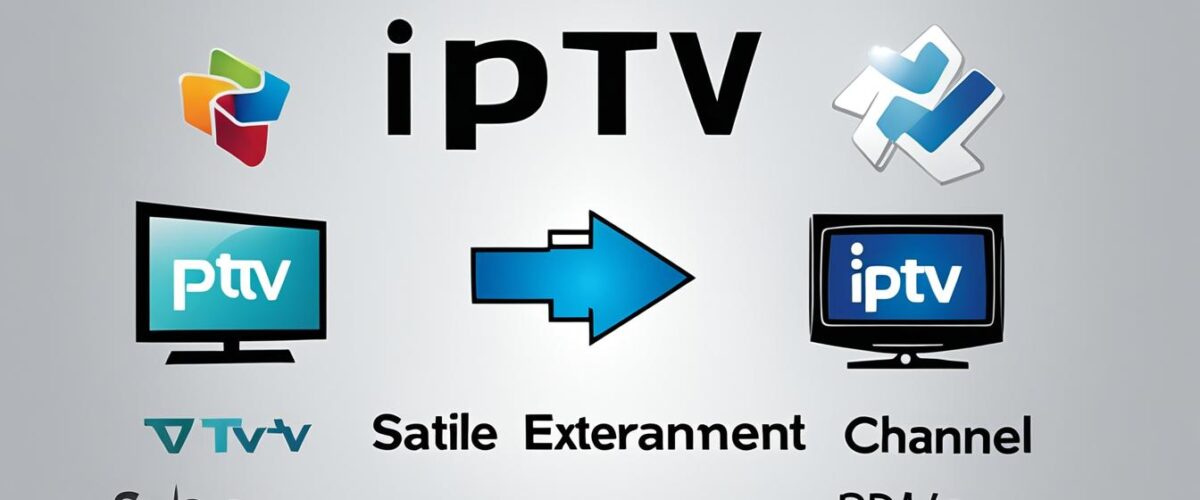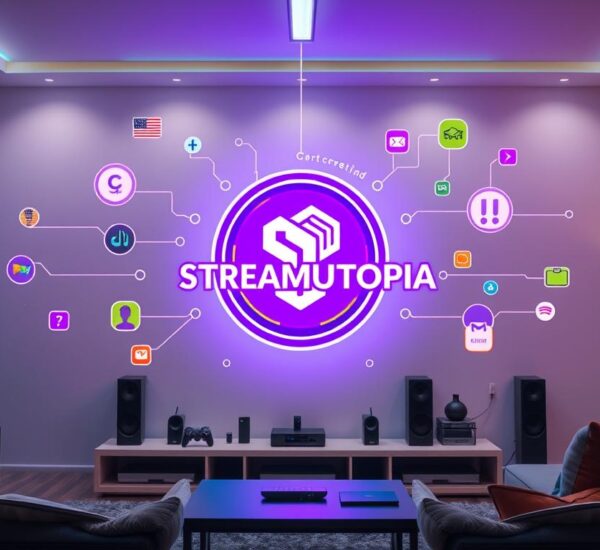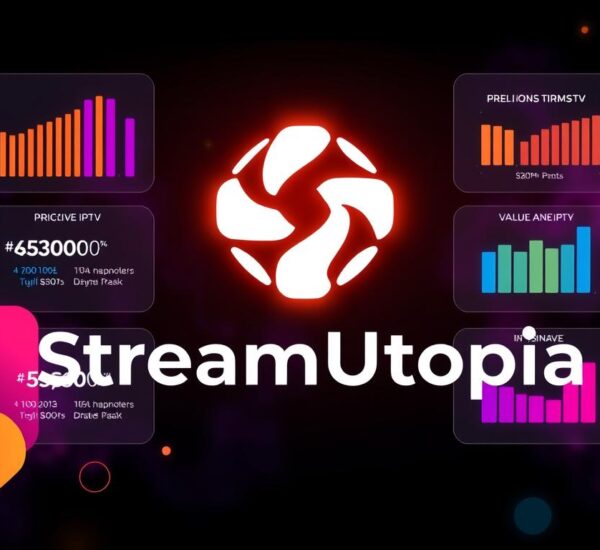Choosing between IPTV and Satellite TV can be tough, especially with so many options out there. Your viewing habits and preferences play a big role in making this choice. In this article, we’ll look at the good and bad of both IPTV and Satellite TV. This will help you pick the best for your home entertainment.
IPTV is known for its reliable and high-quality viewing, thanks to its less chance of internet issues1. Satellite TV is still popular in places where cable isn’t available. As we compare these two, you’ll see why picking between IPTV and Satellite TV can change how you watch TV.
Discover the possibilitiesof a leading IPTV service for enhanced home entertainment
Key Takeaways
- IPTV offers high-quality streaming with reduced buffering times.
- Satellite TV can be a reliable option in underserved areas lacking cable services.
- Bundled IPTV services may provide better value compared to traditional cable and satellite subscriptions.
- The variety of channels available can significantly vary between IPTV and Satellite TV.
- Consider your internet connection quality when opting for IPTV, as it can greatly impact your viewing experience.
- Satellite TV often involves upfront costs due to equipment and installation requirements.
The Evolution of Television: A Quick Overview
Television has changed a lot over the years, moving from old cable TV to digital broadcasting and IPTV. As technology got better, TV went from analog to digital, giving us clearer pictures and better sound. This change started a new chapter in entertainment.
Cable TV used to be a big part of home entertainment, but now it’s facing competition from internet-based services. Many people are dropping cable for services like Netflix and Hulu. These services offer more flexibility and can be cheaper, saving up to $100 a month in big cities like Dallas2.
IPTV has also changed the game. It lets viewers watch many channels over the internet, without needing special devices like satellite dishes or traditional cables3. IPTV makes watching TV better by offering shows that match what you like to watch.
Now, people can watch TV on different devices like TVs, smartphones, and tablets, making it easier to use3. IPTV is getting more popular, but satellite TV is still important in places where cable TV can’t reach. Satellite TV is stable and reliable, making it a good choice for some areas2.
Technology and changing tastes show how TV is always evolving. Knowing about these changes helps us make better choices in our entertainment options.
Understanding IPTV and How It Works
IPTV, or Internet Protocol Television, is a big step forward in how we watch TV online.
What is IPTV?
IPTV uses the internet to send TV shows and movies over the web. You can watch it on devices like TVs, computers, smartphones, and tablets. It’s different from old TV because you can watch shows whenever you want, not just live. This is unlike YouTube or Netflix, which focus on on-demand content but don’t offer live TV channels45.
Delivering Content: The IPTV Streaming Service
IPTV has two main types: centralized and distributed models. Each has its own perks, depending on what the user needs. For example, one subscription can work for all TVs in a house, making it great for families.
To use IPTV, you need a compatible device, fast internet, and a subscription. It offers not just live TV but also Video on Demand (VoD) and Near Video on Demand (nVoD). These services let users watch shows on their own schedule, making it super convenient. The IPTV market is growing fast because it appeals to many people, like sports fans, families, and tech lovers456.
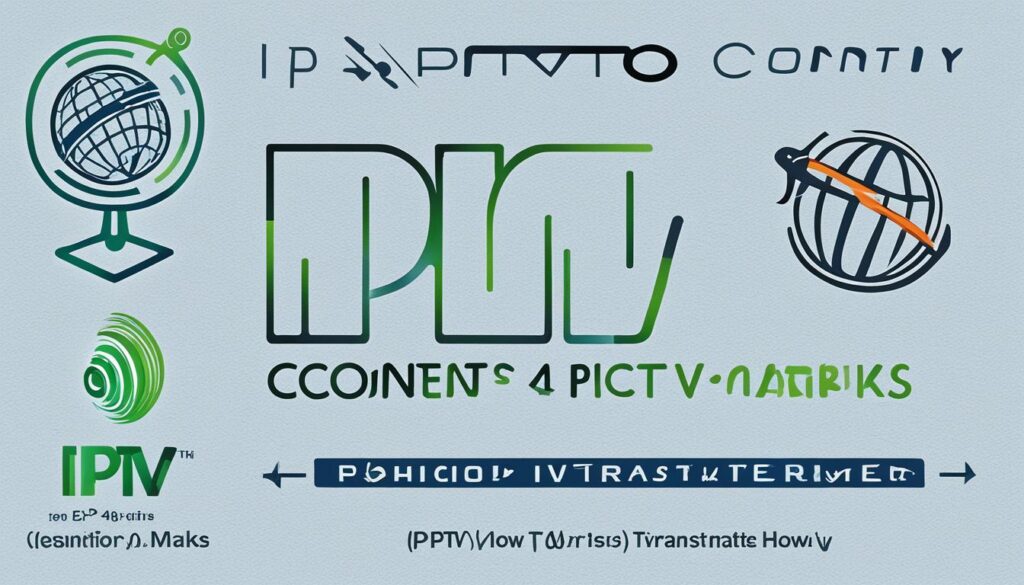
| IPTV Features | Advantages | Considerations |
|---|---|---|
| Access to Live TV | Wide range of content options | Requires reliable internet connection |
| On-Demand Services | Flexibility in viewing schedule | Quality depends on internet speed |
| Compatible with Multiple Devices | Convenience for users | Subscription costs may vary |
Understanding Satellite TV and Its Functionality
Satellite television sends a wide range of channels straight to viewers through satellites in space. It uses advanced tech to send signals from a satellite to a dish at your home.
What is Satellite TV?
Satellite TV delivers shows through satellite signals. These signals come from a satellite in space to a dish on your property. It lets you watch many channels, including HD ones, making it a strong choice against cable TV. It’s perfect for places cable can’t reach, like cottages or rural homes7.
How Satellite Signals Are Transmitted
The journey begins with the satellite getting signals from ground stations. These signals go back to earth and are caught by your dish. Then, they’re changed into something you can watch on TV. Direct Broadcast Satellite (DBS) sends signals directly to you, skipping extra steps8.
Setting up satellite TV might need expert help, but it’s widely available and often cheaper than cable. It’s great for those wanting lots of HD channels9.
IPTV vs. Satellite TV: Which Is Better for You?
Choosing between IPTV and Satellite TV depends on what you like and need. Each has its own strengths that might attract different viewers. Knowing the key differences can help you pick the right one for watching shows at home.
IPTV is great for its flexibility and cost. You can pick a plan that matches your viewing habits, paying only for the channels you want10. It supports 4K streaming with a good internet connection and works on many devices like smart TVs, tablets, and phones10.
Satellite TV offers wide coverage and top-notch picture and sound quality through digital signals11. It’s a good choice for areas without cable. But, it can have issues like signal loss in bad weather and needs a pro for setup12.
When looking at IPTV vs. Satellite TV, think about how fast content gets delivered. IPTV relies on a stable internet, which can cause buffering during busy times11. Satellite TV doesn’t need internet but can have problems with physical barriers.
In short, consider factors like cost, channel selection, and delivery speed to decide what’s best for you. With tech getting better, the fight between IPTV and Satellite TV keeps getting closer, offering more options and flexibility for viewers.
Comparative Analysis of IPTV and Satellite TV
Looking at IPTV and Satellite TV shows us their differences and perks. We’ll focus on cost and channel variety. This info helps people choose the best entertainment option for their budget.
Cost-Effectiveness of IPTV vs. Satellite TV
IPTV is usually cheaper than Satellite TV. Its subscription costs are often lower than traditional cable or satellite services13. Satellite TV, however, has higher upfront costs for things like satellite dishes and set-top boxes13. Even though Satellite TV’s monthly fees might be close to or a bit more than IPTV, the initial costs can stop many from picking it14.
Channel Variety in IPTV and Satellite TV
IPTV has a wide range of channels and lots of on-demand content13. You can watch IPTV on devices like smart TVs, phones, and tablets, making it super convenient13. Satellite TV is also known for its many channels, thanks to providers like DirecTV and Dish Network in the US14. It’s reliable for live events like sports and news, giving viewers real-time content13. Both IPTV and Satellite TV are getting better, with IPTV focusing on flexibility and new tech15.
IPTV Benefits: What Makes It Stand Out?
IPTV has changed how we watch TV, offering big benefits that make it more fun. It’s growing fast, with a 30% to 35% increase each year and over a billion users worldwide. People love it for its flexibility and the ability to watch shows when they want16. This means no more waiting for your favorite show to come on.
Flexibility and On-Demand Access
IPTV is all about flexibility. Unlike old-school cable TV, services like StreamUtopia.com let you pick what you want to watch. You can choose from live streaming or watch shows whenever you like. This makes sure you get to enjoy shows you really like17. Plus, IPTV keeps getting better with new tech like AI and 5G, making it even easier to use17.
User-Friendly Interfaces and Features
IPTV has easy-to-use interfaces that make finding shows a breeze17. They’re designed for everyone, so even the youngest viewers can easily find what they want to watch. IPTV has thousands of channels, offering a wide range of shows in many languages18. And it’s affordable, starting at just $19.99 a month, making it a great deal18.
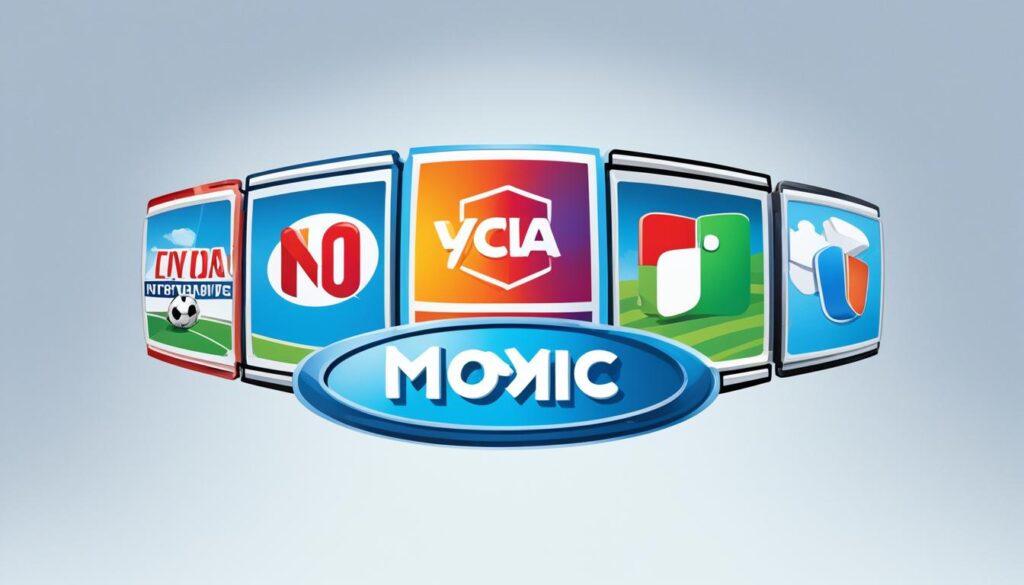
| IPTV Benefits | Traditional TV |
|---|---|
| Flexibility in viewing times | Fixed program timing |
| On-demand access to thousands of titles | Limited content availability |
| User-friendly interface | Less intuitive navigation |
| Customized subscription packages | Standard channel packages |
| Cost-effective options | Higher monthly fees |
Satellite TV Comparison: The Advantages
Satellite TV is a top choice for home entertainment, offering many benefits. It’s great for people in both cities and countryside. Those living far from cities find it especially useful since cable might not reach them.
Widespread Coverage and Availability
Satellite TV shines with its widespread coverage. It reaches almost everywhere, unlike IPTV which can be limited by internet access. This means everyone can watch a wide range of channels, even in places hard to connect to the internet.
Consistent Signal Quality in Different Regions
Satellite TV also offers consistent signal quality. You get clear pictures and sound in HD and 4K. Even when the weather affects the signal, it stays strong, making it a reliable choice for viewers19.
| Feature | Satellite TV | IPTV |
|---|---|---|
| Coverage Area | Widespread, including rural areas | Restricted by internet availability |
| Signal Quality | Consistent with HD and 4K options | Depends on internet connection |
| Channel Variety | Extensive including international, educational, and premium options | Varies based on service provider |
| Weather Impact | Possible interruptions but generally reliable | No impact from weather |
| Cost-Effectiveness | Competitive pricing with bundling options | Generally higher costs due to bundling |
In summary, Satellite TV is a great option for those seeking dependable TV services, especially in areas where other services are lacking. Its widespread coverage and consistent signal quality make it a top choice in home entertainment20.
Bandwidth Requirements for IPTV vs. Satellite
Knowing the bandwidth requirements for IPTV is key for smooth streaming. IPTV needs a strong internet connection, often more than satellite TV. This is clear when we look at the two systems.
Impact of Internet Speed on IPTV
Internet speed greatly affects IPTV streaming quality. You usually need at least 25 Mbps for good streaming without buffering. In 2011, videos made up about 53% of all internet traffic. By 2021, this jumped to nearly 82%, showing the big need for more bandwidth for videos21.
IPTV uses its own network for better image and sound quality without interruptions. It uses multicast to send data efficiently to many users, saving bandwidth21. Satellite TV, on the other hand, gets signals with antennas but faces issues like limited channels and weather problems.
So, having enough internet speed is crucial for IPTV. It’s important for users to check their internet speed before signing up. A good connection and the right devices like routers and set-top boxes are key for enjoying IPTV services like Verizon Fios TV and DIRECTV STREAM21.
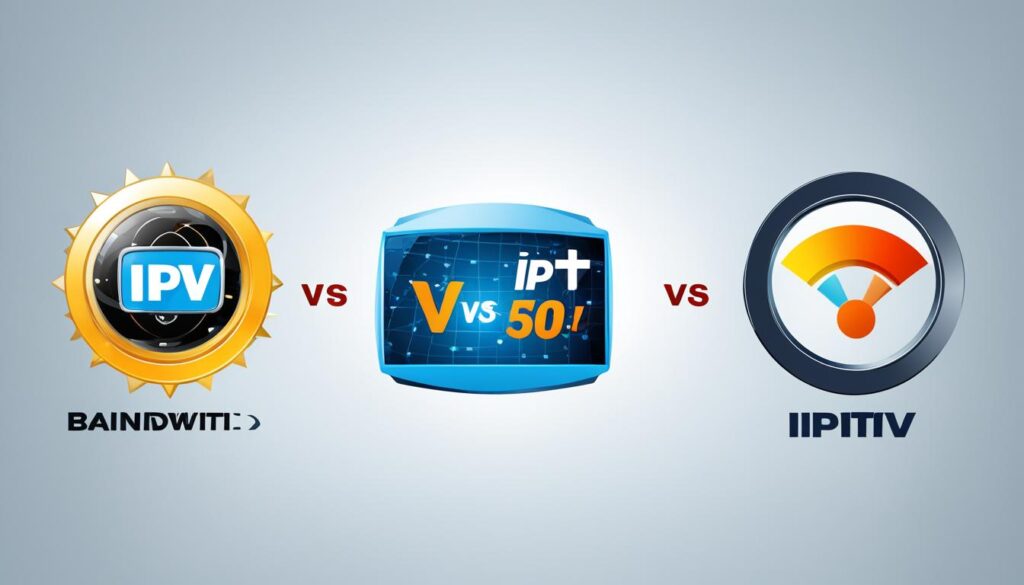
Channel Selection: IPTV Channels vs. Satellite TV Channels
Choosing the right channels is key to a great viewing experience, especially when looking at IPTV and Satellite TV. Both offer different levels of local and global content. This choice greatly affects how happy viewers are.
Access to Local and Global Content
IPTV lets you stream TV channels and on-demand content over the internet. It’s flexible and convenient for subscribers11. You get a wide range of local and international channels, making it easy to find something you like. Satellite TV reaches areas without cable, offering a broad selection of channels, including premium ones, through a satellite dish11.
Premium Channels and Package Options
Both IPTV and Satellite TV let you pick your favorite channels with different packages. IPTV users can choose from various subscriptions to match their viewing habits22. Top IPTV services like Xtreme HD IPTV offer over 20,000 live channels with premium content and great streaming quality22. Satellite TV also has many premium channels but might cost more than IPTV11.
| Service Type | Number of Channels | Key Features | Average Cost |
|---|---|---|---|
| Xtreme HD IPTV | 20,000+ | High-quality streams, VOD options | Varied packages |
| Satellite TV | Diverse range | Extensive coverage, premium channels | Higher fees |
| IPTV Trends | 10,000+ | Affordable, wide range of channels | Competitive pricing |
The Drawbacks of IPTV Services
IPTV services offer many benefits but also have some downsides. One big issue is the dependency on internet quality. IPTV needs a strong and fast internet connection to work well. If the internet is slow or unstable, watching shows can be frustrating.
This internet dependency is a big problem, especially when many people are online at the same time. This can slow down the internet and make IPTV less enjoyable23.
Dependency on Internet Quality
The quality of your internet connection is key to IPTV’s success. A weak or unstable connection can cause problems like service interruptions and poor streaming quality. These issues can be worse if you use a lot of data while streaming.
Such problems can ruin your viewing experience. It’s important to make sure your internet can handle IPTV’s demands2423.
Potential for Buffering and Latency Issues
Buffering and latency are big problems with IPTV. Buffering can happen at the worst times, like during exciting parts of a movie or sports game. This can make users unhappy because they want smooth streaming.
Latency can also make using IPTV slow and unresponsive. To avoid these issues, you need a fast internet connection and know when the internet is busiest2423.
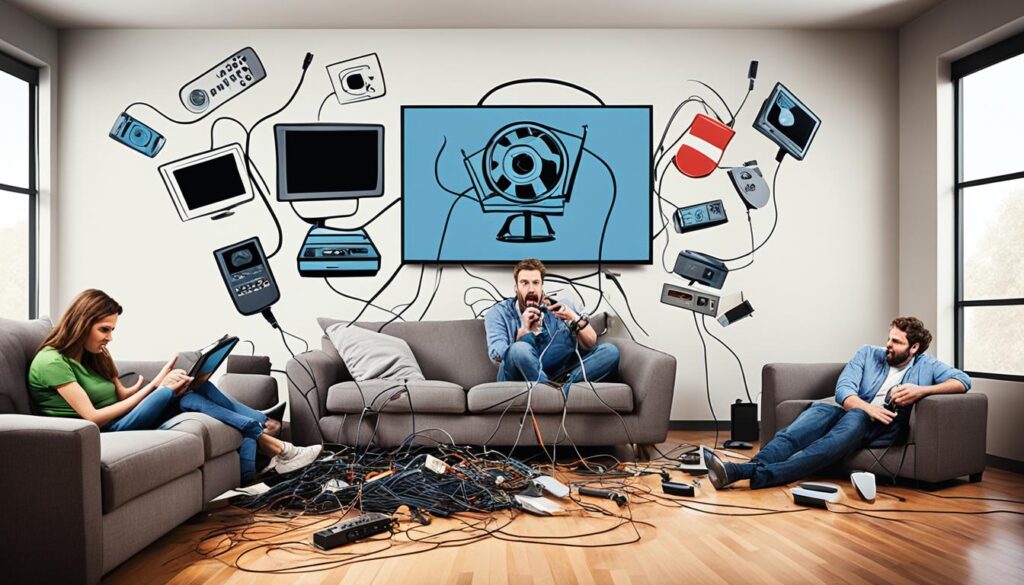
The Drawbacks of Satellite TV Services
Satellite TV services have some drawbacks to consider before choosing. One big issue is signal disruption, especially in bad weather. Rain, snow, or strong winds can make the signal poor, causing interruptions during shows. This can really upset viewers.
Signal Disruption Due to Weather Conditions
Satellite TV uses signals from satellites to a dish on Earth. But, this setup can be affected by the weather. Bad weather can cause big signal disruption, making watching TV hard. Heavy rain or storms often block the signal completely, ruining the viewing experience11.
Also, things like trees or buildings can block the signal. You need a clear path for a strong connection. This might not work well in crowded areas or places with lots of buildings.
Installation Challenges
Setting up Satellite TV can be tricky. It’s not as easy as IPTV, which you can set up with little tech knowledge. Satellite TV needs special skills to install the dish right for good reception. This might mean paying for professional help, which can make the setup harder and more expensive3. Plus, you need a good spot for the installation, like a roof or high place, which adds to the challenge25.
IPTV Provider Advantages: Key Players in the Market
The IPTV market is growing fast, making it more competitive. Users get to pick from many IPTV providers with different subscription packages. These packages meet various needs. Providers offer high-definition content, up to 4K quality, for a better viewing experience26.
IPTV services have a wide range of international channels. This meets the needs of people from different cultures26. It makes IPTV versatile and popular worldwide.
Flexible Subscription Packages
Flexible subscription packages are a big plus for IPTV providers. They offer different levels for casual and serious viewers. Prices vary, from a few euros a month for basic to more for premium content and extra features26.
Big names like Verizon, Netflix, and Hulu offer competitive options27. Smaller providers like Apollo Group TV and ITV Trends focus on specific content genres27.
StreamUtopia.com: A Leading IPTV Service
StreamUtopia.com is a top choice for IPTV users. It focuses on a great user experience with easy navigation and excellent customer support. The service has a wide range of channels and programs, meeting the needs of its subscribers26.
Customers can choose a flexible subscription that fits their viewing habits. It ensures high-quality streaming and regular updates26. For the best experience, you need a stable internet connection. A speed of at least 10 Mbps is recommended for HD viewing26.
In summary, IPTV has changed home entertainment. It offers users many choices that fit their preferences.
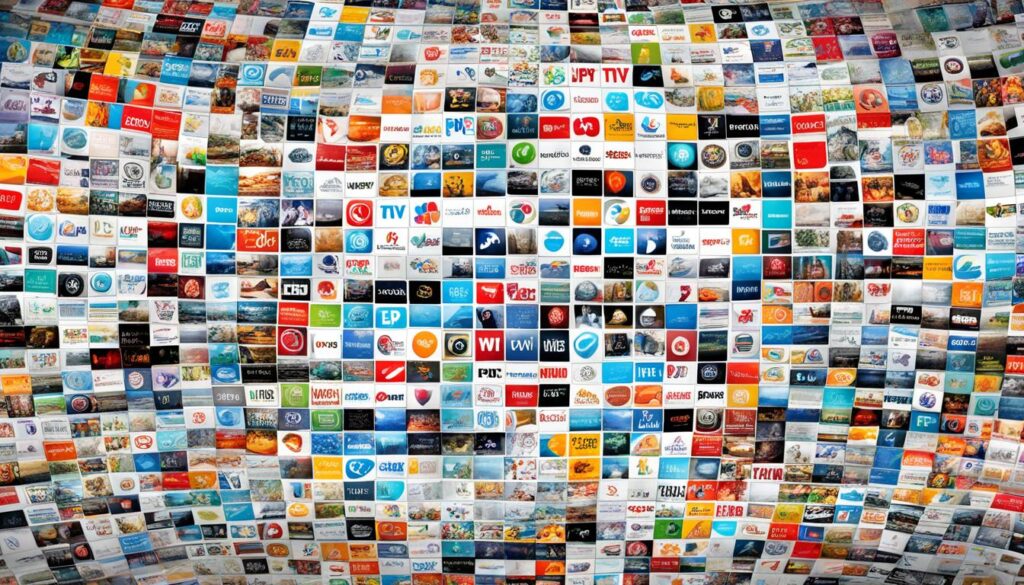
Satellite TV Reception Quality: What to Expect
Understanding satellite TV reception quality means knowing what affects your viewing. Key factors like signal strength and interference are important for satellite TV users. With the right dish setup, you can usually get a steady signal.
Understanding Signal Strength and Interference
Signal strength is key to clear and reliable satellite TV reception. A strong signal means fewer interruptions while watching. But, there are things that can cause interference, such as:
- Physical obstructions like trees or buildings.
- Bad weather conditions, such as heavy rain or snow.
- Improper alignment of the satellite dish.
Getting your dish set up right is important for a strong signal. Make sure your dish can see the satellite clearly to avoid interference. You might need to adjust it now and then to keep the signal strong. By focusing on these tips, you can enjoy your favorite shows without interruptions.
The Role of Equipment in IPTV and Satellite TV
For those new to IPTV or satellite TV, knowing what equipment you need is key. Each service has its own set of gear to make sure you get the best experience. Choosing the right IPT installation equipment or satellite TV equipment is crucial for enjoying your shows.
Necessary Equipment for IPTV Subscribers
At the core of IPTV, you’ll need:
- Set-Top Box: This device changes signals for your TV and connects to your internet.
- Broadband Internet Connection: A fast, stable internet is key for smooth streaming.
- Router: A good router means a strong network, which improves your streaming.
Quality IPT installation equipment is a must for IPTV to prevent buffering and ensure a smooth watch. This means you can enjoy a wide range of channels and content without interruptions.
What You Need for Satellite TV Installation
For satellite TV, you’ll need:
- Satellite Dish: This catches the signals from satellites.
- Satellite Receiver: Turns satellite signals into something you can watch on your TV.
- Low Noise Block (LNB) Converter: Boosts and receives the satellite signals.
Don’t forget about placing your dish right for the best signal. Getting it set up correctly means you’ll have access to lots of channels and services.
Both IPTV and satellite TV need careful thought about the necessary equipment to make the most of your setup2829.
Long-Term Value: IPTV vs. Satellite TV
IPTV and Satellite TV offer different values over time, beyond just the cost at the start. Looking at ongoing costs and support is key to seeing which is better for users.
Analyzing Cost Over Time
Looking closely at Satellite TV cost analysis shows big price differences. Cable TV often costs more than IPTV and Satellite TV, making them good for those watching their budget2. IPTV services like Yadrop offer good prices with clear costs. They have various plans to fit what users want30. With a free trial and a 7-day money-back guarantee, IPTV adds more value over time30.
Customer Support and Reliability
Good customer support is key to keeping users happy over time. Yadrop offers 24/7 help through live chat, email, and phone30. This reliable support might make IPTV better than Satellite TV when problems arise or during busy times. Satellite TV is widely available in the US but support quality can change, affecting how users feel over time2.
Making an Informed Decision for Home Entertainment
Choosing between IPTV and satellite TV for home entertainment is crucial. You should look at content, pricing, and user experience. IPTV offers a wide range of content, including international channels and on-demand movies, which traditional cable can’t match31. You can watch this content on various devices like smart TVs, tablets, and smartphones32.
IPTV is also more affordable than satellite TV33. You can pick your channels and pay only for what you want, unlike traditional cable which often costs more for premium content33. Satellite TV is known for its reliable service, especially for live sports32.
Consider your internet speed when choosing IPTV as it affects performance31. Satellite TV works well in areas without cable, like rural places32. To make a good choice, think about what you watch, what you like, and your budget.
| Factors | IPTV | Satellite TV |
|---|---|---|
| Content Variety | Extensive, including on-demand options | Limited, but includes live sports |
| Pricing | More affordable, customizable packages | Generally higher fees with premium costs |
| Accessibility | Requires internet; available on multiple devices | Available in remote areas; limited by geographical location |
| Quality | HD and 4K options available | Stable quality, less dependent on internet |
| User Experience | Interactive features such as pausing and rewinding live TV | Less interactive features; focuses on live broadcasting |
Conclusion
The choice between IPTV and satellite TV depends on what you need and like to watch. IPTV is getting popular because it’s cheaper. Services like HellowTV offer lots of channels for less money than traditional satellite TV34. IPTV also lets you watch shows on different devices and has a lot of on-demand content35.
Satellite TV is great for those who want good coverage and a strong signal, especially in places where internet is slow36. Both IPTV and satellite TV have their pros and cons. Thinking about your budget, what channels you like, and how reliable your internet is will help you pick the best for your home.
The debate between IPTV and satellite TV shows how entertainment is changing. It’s up to viewers to pick the service that fits their life best. Whether you choose IPTV for its variety and price or satellite for its dependability, the choice is yours. This leads to a more customized way of watching TV.
FAQ
What are the main differences between IPTV and Satellite TV?
What are the benefits of using IPTV services?
Does Satellite TV provide better channel variety than IPTV?
How does internet speed affect IPTV streaming quality?
Are there any drawbacks to Satellite TV compared to IPTV?
What equipment is needed for IPTV and Satellite TV?
Which service offers more customer support options, IPTV or Satellite TV?
Can I watch IPTV on multiple devices?
What should I consider when choosing between IPTV and Satellite TV?
